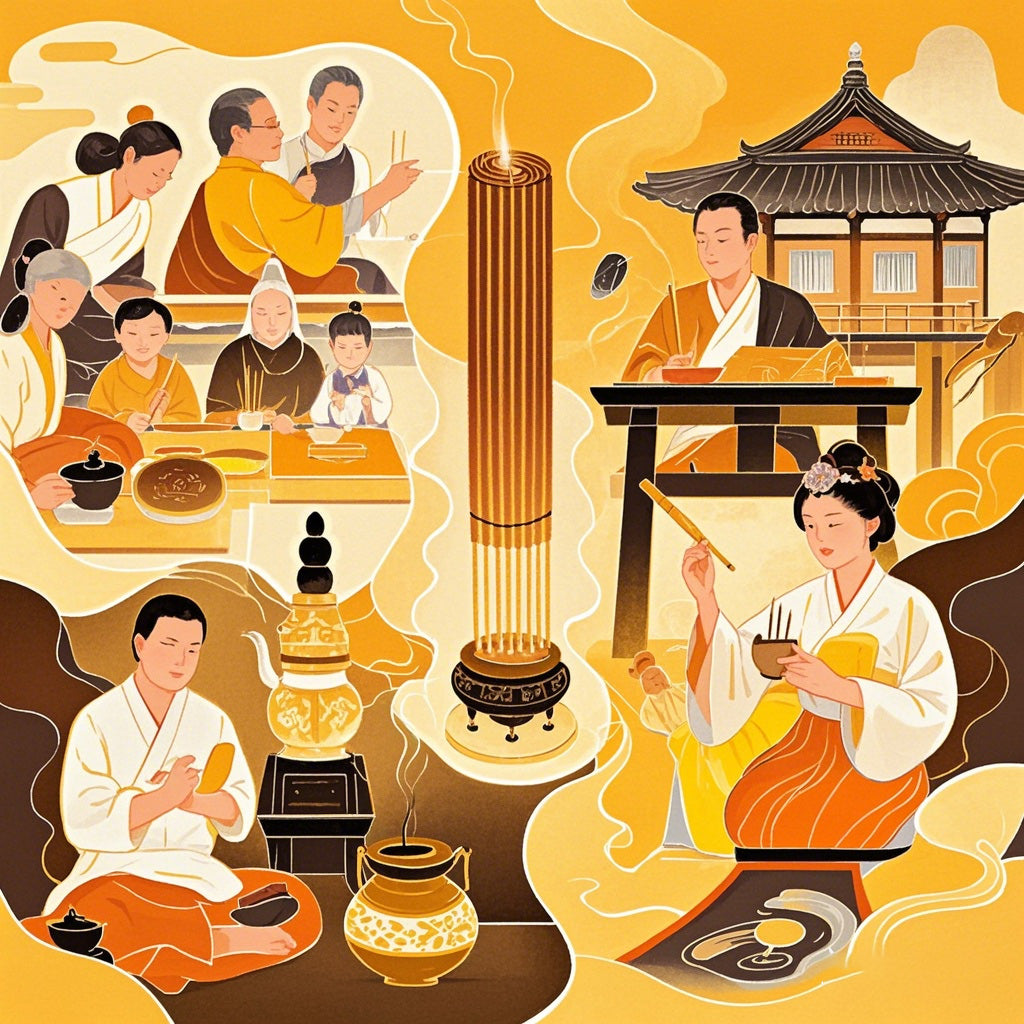The Relationship Between Incense and Ancient Trade

Incense, as a traditional aromatic product, plays an important role not only in religious ceremonies and daily life but also has a close connection with ancient trade. This article will explore the origins of incense, its status in ancient trade, and its impact on cultural exchange.
The Origins of Incense
The use of incense can be traced back to ancient civilizations, especially in regions like China and India. Early incense was primarily made from natural plant materials such as sandalwood, flower petals, and spices. Over time, incense not only became a necessity in religious rituals but also gradually integrated into daily life, becoming an important cultural symbol.

Incense in Ancient Trade
In ancient times, the trade of incense primarily occurred through the Silk Road and maritime trade routes. The Silk Road was not only a channel for the exchange of goods but also a bridge for cultural exchange. As a precious commodity, incense was often used as a medium of trade.
-
The Role of the Silk Road: Through the Silk Road, incense spread from the East to the West, becoming a luxury item for the nobility and wealthy classes. Many merchants profited significantly from selling incense.
-
Maritime Trade: In maritime trade, incense also became an important trading commodity. Chinese incense entered Southeast Asia, India, and beyond via the maritime Silk Road, promoting economic and cultural exchanges among nations.

Medicinal Incense and Chinese Incense Trade
In China, the production of incense often incorporates medicinal ingredients, forming a unique type of medicinal incense. These incenses not only possess fragrance but also contain the medicinal value of traditional Chinese medicine, widely used for health and wellness.
-
Medicinal Ingredients: Common ingredients in medicinal incense include cinnamon, licorice, and mint. These materials not only enhance the fragrance but also offer benefits such as stress relief and improved sleep.
-
The Rise of Incense Trade: With the popularity of medicinal incense, China's incense trade gradually emerged. Particularly during the Tang and Song dynasties, the incense trade flourished, with many merchants focusing on the production and sale of medicinal incense, forming a complete industrial chain.
-
Overseas Markets: Medicinal incense was not only popular domestically but also spread to Southeast Asia, Japan, and South Korea through trade, becoming part of local cultures. As medicinal incense spread, many countries began to accept and use these products, further promoting cultural exchange.
The Impact of Cultural Exchange
The trade of incense not only facilitated the flow of goods but also brought about cultural exchange. The spices and production techniques from different regions influenced each other, enriching the varieties and flavors of incense. For instance, the combination of Indian spices with Chinese ingredients resulted in unique incense products that met the needs of various cultures.
Moreover, the use of incense also promoted the spread of religious beliefs. In many cultures, lighting incense is viewed as a form of prayer and meditation, a practice that expanded with the spread of incense, strengthening the connections between different cultures.
Conclusion
Incense is not just an everyday item but also an important component of ancient trade. Through the Silk Road and maritime trade, incense facilitated economic exchange and cultural interaction between the East and West. The rise of medicinal incense, in particular, allowed Chinese incense trade to secure a place in the international market. Today, incense remains popular worldwide, serving as an important bridge connecting different cultures. By understanding the relationship between incense and ancient trade, we can better appreciate its significance in history and culture.
-
Posted in
History, Incense, Incense legacy, Incense Stick







![[Simplicity Incense Trial Version] Incense Natural Incense Simplicity, 100% Natural Ingredients, Oriental Philosophy-Inspired Fragrance Practice.](http://therapyincense.com/cdn/shop/files/Chinese-Herbal-Incense-For-Healing_small.jpg?v=1735617918)